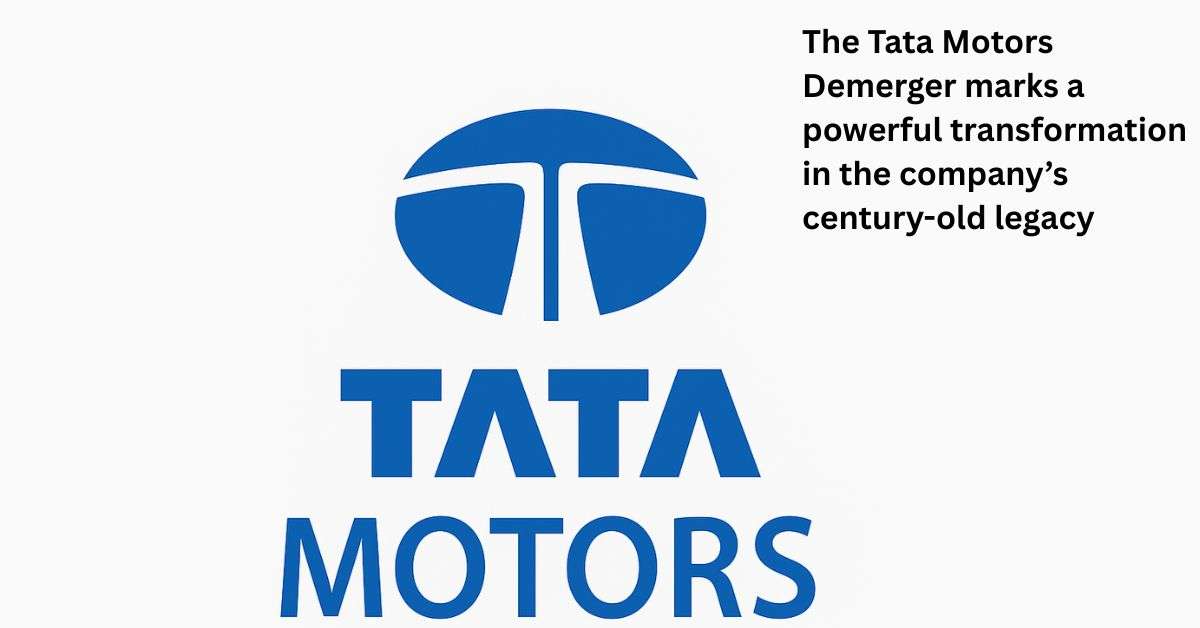India’s power sector is experiencing rapid transformation, driven primarily by rising energy demand and a national commitment to renewable energy. Two leading companies in the sector, Tata Power and JSW Energy, recently received ‘buy’ ratings from global brokerage firm Nomura, with potential upside of up to 22%. Both companies are key players in India’s energy future, with significant investments in renewable energy and continued expansion in power generation capacity. This article explains why these stocks have caught Nomura’s attention and why they are recommended as solid investment options.

India’s Expanding Power Sector
India’s electricity demand is projected to grow steadily due to factors such as urbanization, industrial growth, and the growing use of electric vehicles (EVs). The Indian government is also actively promoting renewable energy, aligning the country’s development with global sustainability goals. Policies such as the National Solar Mission and various incentives for solar and wind power projects have accelerated investments in green energy. In this scenario, companies such as Tata Power and JSW Energy are strategically positioned to benefit from the evolving energy landscape.
Role of Renewable Energy
Renewable energy, particularly solar and wind power, is fast emerging as the backbone of India’s future energy needs. Nomura’s analysis shows that a significant portion of Tata Power and JSW Energy’s growth will come from their investments in renewable energy. India’s shift from traditional coal-based energy sources to clean, sustainable alternatives will meet nearly 75% of additional electricity demand by 2025, with solar and wind power at the forefront. As a result, Tata Power and JSW Energy, with their established portfolio in renewable energy, are likely to experience strong growth.
Key Initiatives and Future Outlook of Tata Power
One of the biggest integrated power businesses in India, Tata Power is engaged in the production, distribution, and transmission of electricity. The company is expanding its renewable energy capacity and currently has a pipeline of over 5.5GW in renewable energy projects. Tata Power’s growth in the renewable energy sector is underscored by its active participation in solar power generation and solar PV (photovoltaic) manufacturing. One of Tata Power’s most significant initiatives is its expansion into EV charging infrastructure. By 2024, the company has set up over 5,500 EV charging stations across India. Additionally, Tata Power has received orders worth over ₹157 billion for solar power-related engineering, procurement, and construction (EPC) projects. The company aims to source 70% of its energy from renewable sources by 2030 and plans to completely phase out its coal-based thermal power generation by 2045.
JSW Energy: A pioneer in renewable energy expansion
JSW Energy is another major player in India’s power sector with a special focus on renewable energy. The company has an installed capacity of 7.54GW, with an additional 8.3GW of renewable energy projects in various stages of development. JSW Energy’s strategy revolves around renewable energy generation and energy storage solutions, positioning the company as a key player in India’s clean energy transition.
JSW Energy has invested significantly in battery storage and pumped hydro projects. The company’s long-term strategy is focused on securing stable cash flows through power purchase agreements (PPAs), which cover approximately 92% of its current capacity. These agreements provide financial stability, reduce market risk, and ensure long-term profitability for the company.
Financial Outlook: Tata Power
Tata Power’s financial performance has been strong, with Nomura forecasting a compound annual growth rate (CAGR) of 16% in earnings before interest, tax, depreciation, and amortization (EBITDA) between FY24 and FY27. The company’s focus on expanding its renewable energy portfolio, particularly solar power, is expected to lead to higher profit margins in the coming years. Tata Power’s shift from coal to renewable energy will further improve its profitability, as renewable projects typically have higher margins than traditional energy sources.
Financial Outlook: JSW Energy
JSW Energy’s financial future also looks promising, with Nomura predicting a 38% CAGR in EBITDA from FY24 to FY27. The company’s increasing focus on renewable energy, as well as its solid long-term PPAs, ensure stable and predictable revenue streams. Nomura expects about 95% of JSW Energy’s EBITDA to come from renewable energy by FY30, making it a highly sustainable business model in the long run.
Why Nomura is bullish on Tata Power
Nomura’s investment thesis for Tata Power is based on several key factors. The company’s vast portfolio of renewable energy projects and its strong position in the EV charging infrastructure market make it a leader in India’s energy transition. With significant investments in solar PV manufacturing and renewable energy generation, Tata Power is well-positioned for long-term growth. The company’s strategic initiatives, such as its focus on reducing its carbon footprint and expanding its clean energy capabilities, further strengthen its investment case.
Why Nomura is bullish on JSW Energy
Nomura’s buy rating for JSW Energy stems from the company’s aggressive expansion into renewable energy and energy storage solutions. JSW’s diversified energy portfolio, combined with its strategic focus on long-term agreements, makes it an attractive investment option. The company’s investments in innovative energy storage technologies such as pumped hydro and battery storage are expected to ensure long-term profitability while meeting the country’s growing energy demand.
Government support and policy framework
The Indian government’s favourable policies play a key role in the growth of the power sector. Initiatives such as tax exemptions for renewable energy projects and subsidies for EV charging stations have accelerated the expansion plans of companies such as Tata Power and JSW Energy. Policies aimed at reducing carbon emissions, such as the National Action Plan on Climate Change, further boost the prospects of these companies.
The promise of green hydrogen
Green hydrogen is an emerging technology that holds great potential for India’s energy future. According to Nomura, green hydrogen can generate up to 300TWh of power demand, benefiting companies such as Tata Power and JSW Energy, which are investing in renewable energy. Both companies, which are early adopters of this technology, are well positioned to benefit from the green hydrogen revolution, which is expected to play a key role in the global energy transition.
Risks to consider
While Tata Power and JSW Energy are poised for growth, there are risks to consider. These include delays in project execution, regulatory hurdles, and market volatility. Additionally, the rapid pace of technological advancement in the renewable energy sector could increase competition, which could impact profit margins.
Conclusion
Both Tata Power and JSW Energy are at the forefront of India’s energy transition, making them solid candidates for long-term investments. With their focus on innovative technologies such as renewables, energy storage, and green hydrogen, these companies are well-positioned to benefit from the growing demand for clean energy. Nomura’s buy ratings for both companies reflect their strong growth potential, making them ideal stocks for investors looking to invest in India’s emerging power sector.
ZERODHA 1) : https://zerodha.com/open-account?c=EJ4366
Angelone 2) : https://tinyurl.com/2gloc3g6 or
Upstox3): https://link.upstox.com/9w4tNo1rK8au7VK47









